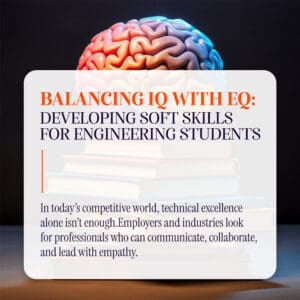
Quantum computers use the principles of quantum mechanics to perform complex computations, offering unprecedented power that could solve problems beyond the reach of classical computers.
This blog explores their potential to advance artificial intelligence, optimise logistics, and crack encryption while examining core principles, applications, and the future they promise to shape.
The Power of Qubits
Qubits, the quantum equivalent of classical bits, revolutionise information processing by utilising superposition and entanglement. Unlike traditional bits that are either 0 or 1, qubits can exist in multiple states simultaneously, allowing for numerous calculations to be performed simultaneously and significantly enhancing processing power.
Entanglement links qubits, so the state of one affects another, even at a distance. These unique properties empower quantum computers to tackle complex problems in cryptography, optimisation, and artificial intelligence much faster than classical computers, opening new possibilities in computation.
Quantum Speedup
Quantum speedup has ground-breaking potential in modern computing, allowing for significantly faster solutions to complex problems than traditional computing.
Notable algorithms like Shor’s and Grover’s illustrate this speedup by dramatically reducing the time needed for tasks such as breaking encryption and searching unstructured data. This efficiency could transform various fields, including cryptography, drug discovery, climate modelling, and artificial intelligence, paving the way for innovations previously thought impossible.
Ultimately, quantum speedup enhances speed and opens up new solutions to problems that were once deemed intractable.
Quantum Computing in Engineering and Design
Quantum computers can rapidly assess multiple options, leading to optimal resource allocation, supply chain management, and structural design solutions.
In materials science, they facilitate simulations of molecular interactions, resulting in the development of advanced materials for aerospace and energy storage applications. Quantum algorithms enhance the accuracy of testing and prototyping models, significantly saving time and costs. They also improve machine learning and artificial intelligence, creating more intelligent and adaptive systems in engineering design.
As quantum technology continues to progress, its integration into these fields is expected to revolutionise product conceptualisation, design, and production.
Challenges and the Potential of Quantum Computing
The journey toward mainstream quantum computing adoption is filled with challenges, primarily due to the technical complexities of stable quantum systems, where qubits are sensitive to noise and errors.
Scalability is a major concern as researchers work to develop powerful quantum computers for real-world issues. Advances in quantum error correction, hardware, and algorithms are paving the way for applications in climate change and artificial intelligence.
While the path is challenging, the potential for innovation and global collaboration is vast.
OmDayal Group of Institutions: Quantum Computing at the Forefront of Innovation
Our institution promotes innovation by equipping students with the necessary skills to thrive in a rapidly evolving digital world. We prepare future engineers and scientists through hands-on lessons, research opportunities, and expert mentorship.
Quantum computers represent transformative technology, aligning with our progressive strategy and inspiring students to explore their potential and contribute to development.
The OmDayal Group aims to merge education and innovation, shaping leaders who will drive change and enhance possibilities in the emerging era of quantum-powered solutions.
References:
- https://www.ibm.com/topics/quantum-computing
- https://www.seattletimes.com/business/quantum-computing-inches-closer-to-reality-after-another-google-breakthrough/#:~:text=In%202019%2C%20a%20team%20of,the%20evolution%20of%20information%20technology
- https://seattlemedium.com/quantum-computing-financial-sector/




